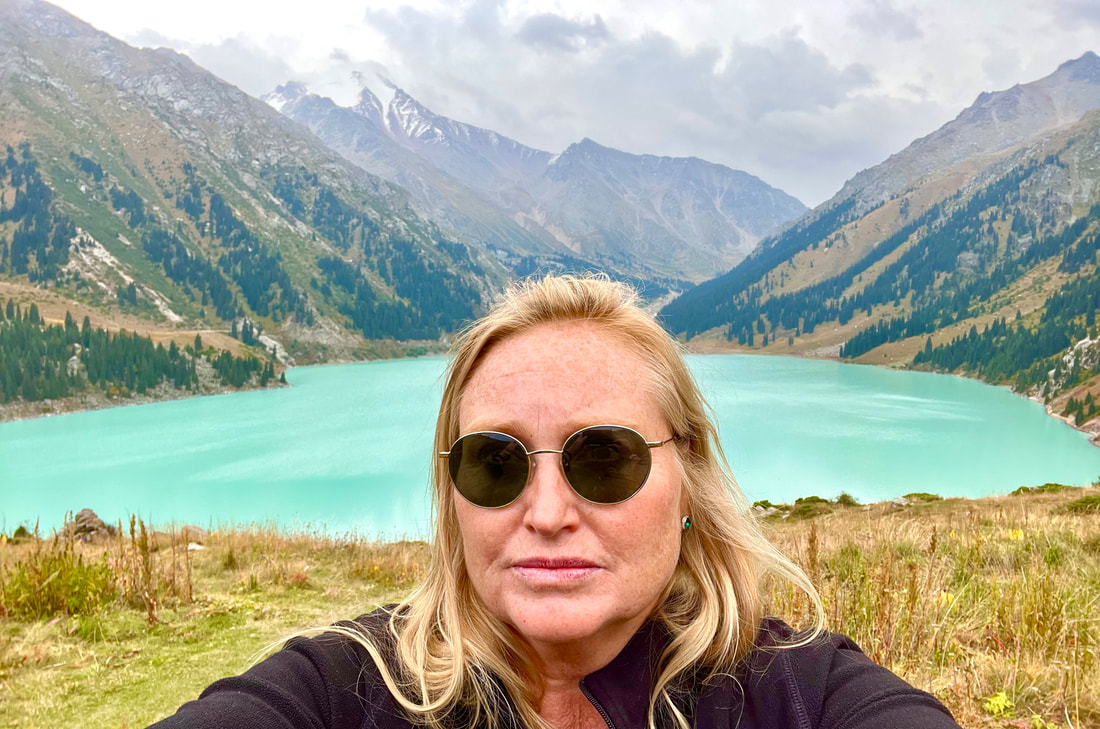|
July 4: American Independence Day
I've been in Kazakhstan for five days. The first journalist I contacted is Makhambet Abzhan, a freelancer and popular blogger in Nur-Sultan, the capital where my husband and I are staying for the next month. I was eager to meet Abzhan because he was one of the journalists who covered the protests in Kazakhstan in January in which more than 227 people were killed. Many journalists who covered the riots were arrested and detained. Abzhan disappeared for a week after the government accused him of igniting one of the riots. We agreed to meet on July 5 at a popular cafe. But on Monday, July 4, I discover that Abzhan has been arrested and is sitting in a Nur-Sultan jail on suspicion of extorting the equivalent of $107,000 from a wealthy businessman not to publish damaging information about him. I call Xeniya, my translator. She, my husband, Greg, and I rush off in a cab to a court house on the other side of the city. But when we arrive we are told that the government has changed the courthouse to one on the outskirts of the city —the exact opposite of where we are. It takes us half an hour to get there. When we arrive we learn the hearing has been delayed. Abzhan has insisted on appearing physically in court instead of virtually. Also holding up the hearing is that the government wants Abzhan's attorney to sign an agreement not to discuss the case publicly. Who ever heard of such a thing? He refuses. I interview Abzhan's attorney, his wife of three weeks, his attorney, and his supporters. No one can believe that Abzhan would ever extort money. So far this year he has prevailed in two court cases against him. Using the courts and charging journalists with crimes unrelated to their journalism is the most popular tactic in Kazakhstan to intimidate and silence reporters. The government tries to shame journalists into silence by charging them with pornography or tax evasion or theft—or extortion. Abzhan's hearing is rescheduled for the next day, July 5. That hearing lasts over three hours. The outcome is that the government has decided to keep Abzhan in jail for two months while it investigates the charges against him. Except it's unclear if the government has actually formally charged Abzhan. I update my story and go back and forth with the editor at midnight. Finally the story appears online. You can read it here. Comments are closed.
|
Fulbright in Central AsiaFrom March, 2022 to January of 2023, I was a Fulbright Scholar with the U.S. State Department in post-Soviet Central Asia. My previous Fulbright was in Ukraine. For the past six years, I have reported on journalists from post-Soviet countries who have experienced retaliation for reporting the truth. Archives
January 2023
|





 RSS Feed
RSS Feed
